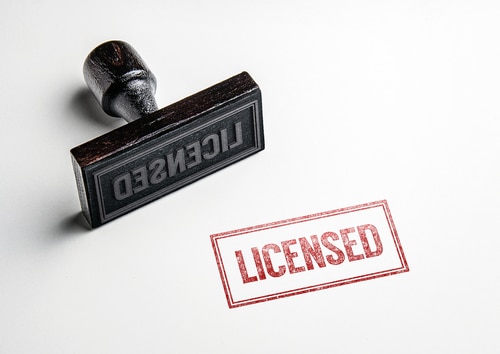What Happens When the Croydon Selective Licensing Expires in October 2020?
The current selective licensing scheme that applies to privately rented properties in Croydon is set to come to an end on 30 September 2020. The question for landlords Croydon wide is, what happens next?
The current selective licensing scheme that applies to privately rented properties in Croydon is set to come to an end on 30 September 2020. The question for landlords Croydon wide is, what happens next?
Property licensing can be a complicated topic to fathom. In some locations, the only instance in which a licence is required by a residential landlord is when the property being let is a house in multiple occupation (HMO), and it falls under the definition of a ‘large HMO’ and therefore requires a mandatory HMO licence. However, in other locations, individual councils have their own rules in place. So in some areas, it may be the case that additional or selective licensing applies.
Over half of London boroughs currently operate additional or selective licensing schemes, so it is important for London landlords to be aware of which rules apply in their area.
What is selective licensing?
Part III of the Housing Act 2004 gives councils power to put in place a selective licensing scheme covering pretty much all the privately rented properties within a designated geographical zone. In the London Borough of Croydon, almost all privately rented properties must be licensed, because a selective licensing scheme is in place. This scheme was implemented on 1 October 2015, and runs until 30 September 2020. There are a few exemptions, but not many.
Landlords Croydon wide should be aware that the selective licence will be required for any house or flat that is rented to a single person, a couple, or a single household anywhere in the south London borough. Selective licences are also required for HMOs that do not fall under the mandatory HMO licensing scheme (in other words, those not classed as a large HMO).
The question though on the minds of any letting agent, landlord or property management company in Croydon at this time has to be, what will happen when the current selective licensing scheme comes to an end in October 2020?
What next for Croydon’s selective licensing scheme?
Well, Croydon Council has put together plans for a replacement selective licensing scheme to take over from the current one that expires on 30 September 2020.
An application was made to the government on 20 Jul 2020 following a 12-week consultation that culminated in Cabinet approval on 11 May. The consultation proposed three options for a renewed scheme, with the final choice being one that covers the entire borough, targeting anti-social behaviour across six wards in South Croydon, and poor housing conditions in 22 wards, mainly in the north and centre of the borough.
Final government permission is required for any new licensing scheme that covers over 20 per cent of the private rented sector, or 20 per cent of the geographical area of the borough.
According to the Croydon Council website, the application is now in the final stage of 10 months’ work.
Over 48,500 properties are covered by the existing borough-wide scheme, launched with the aim of ensuring private landlords Croydon wide meet a range of housing, environmental and safety standards. Under the scheme, all Croydon landlords must hold a Croydon property licence and comply with certain requirements. This includes six-monthly inspections, safety measures and the provision of a sound tenancy agreement.
The council claims that the scheme has so far made it possible to resolve thousands of incidents without the need for further action against landlords. Over 13,000 properties have been inspected, 1,000 enforcement notices served, 75 prohibition orders issued and more than 40 landlords fined or prosecuted.
Continuing the benefits of the Croydon selective licensing scheme
Croydon Council’s deputy leader and Cabinet Member for Homes and Gateway Services, Cllr Alison Butler, is keen to see the benefits of the scheme continue beyond the end of September. She said: “Our landlord licensing scheme has made a positive difference to the lives of thousands of private tenants across the borough, and the proposals we’ve now submitted to government are about building on this crucial work for another five years.”
Landlords in Croydon will continue to pay £750 for the five-year licence, with discounts available, including a reduced £350 fee for current licence holders. More than 80 per cent of landlords licensed under the existing scheme paid a reduced fee.
Cllr Butler also said that the pandemic situation had made it even more important for residents to be able to enjoy a decent, safe and secure home. “It underlines why we need the government to approve our scheme so we can continue to raise living standards in Croydon,” she said.
Landlords, letting agents and property managers in Croydon may be interested in these useful FAQs outlining the details of the newly proposed selective licensing scheme, which is hoped to commence on 1 October 2020.
Landlords in Croydon: Interested in letting your property to the local authority under the homes2let guaranteed rent scheme?
homes2let, South Croydon’s respected provider of safe, secure family homes to local authority tenants, offers a guaranteed rent scheme that Landlords Croydon wide are taking advantage of in large numbers.
To discover how this way of renting your Croydon property could benefit you, you are welcome to get in touch with our friendly team of experts.
Please be advised the current licensing period started on 1 October 2015 and expires on 30 September 2020 therefore if any landlord intends on renting their property within the above timeframe, please be advised they will pay the full license fee and only be covered until the end of October.
Related Insights

Landlords Beware: Tenant Referencing Fraud Continues to Rise
Tenant referencing platform Homeppl has revealed how a fraudulent tenant attempted to rent properties from three different letting agents, highlighting the serious challenges landlords are up against. Whilst the referencing technology was able to thwart the attempts to rent, Homeppl has warned that landlords and letting agents using traditional referencing systems would not have been so fortunate.

New Rules for Landlords on Smoke and Carbon Monoxide Alarms
Private and social landlords are set to face tougher new rules, making it a legal requirement to fit smoke alarms in all types of rented accommodation, regardless of tenure. The conditions under which they must be fitted will also be widened. Read on for an update on the latest landlord smoke alarm requirements for the UK.

The Importance of Regular Mid-term Inspections
Ensuring minor issues don’t escalate into major problems is an exercise that never fails to save landlords time and money. It’s precisely why the mid-term inspection is such a vital tool. Here’s the lowdown on mid-term inspections, why as a landlord you should be investing in them, how often you should be doing them, and what’s involved.







